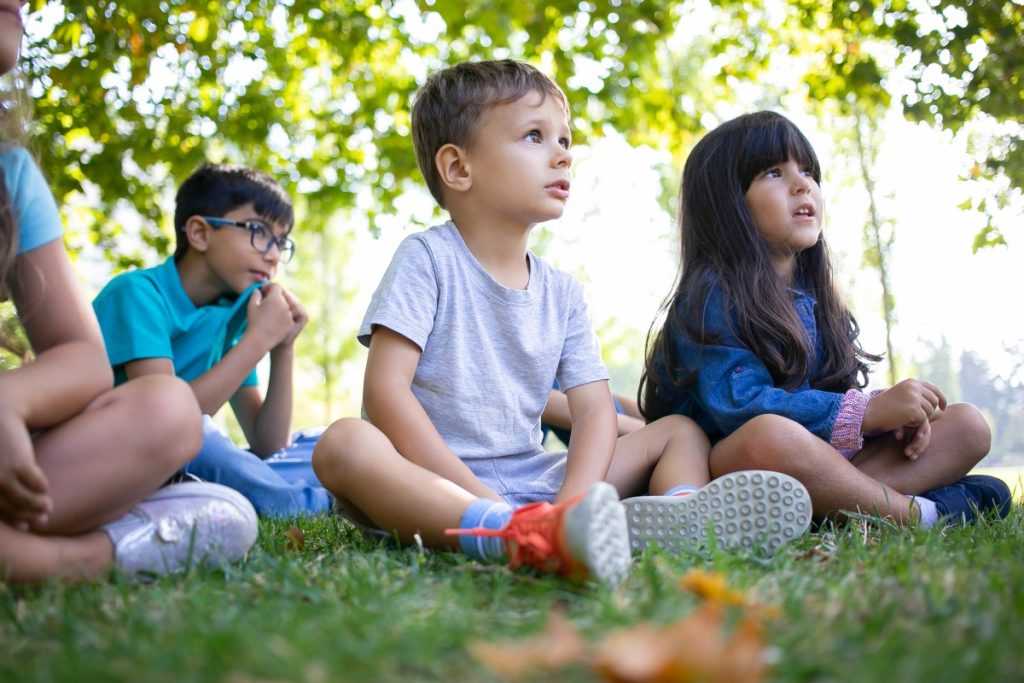The back-to-school season is an exciting time for families, but it can also bring new challenges—especially for preschoolers who may be experiencing school for the first time or adjusting to a new classroom. At Little Planet Preschool in Winchester, MA, we know that transitions take time, and every child’s journey looks a little different. With patience, preparation, and the right support, you can help your child start the school year feeling confident, calm, and ready to learn.
In this article, we’ll share practical back-to-school strategies for parents of preschoolers, covering daily routines, emotional support, independence skills, and ways to partner with teachers.
1. Start Building the Routine Early
One of the biggest challenges for young children after summer break is adjusting to a structured schedule.
-
Shift bedtimes gradually. Preschoolers need about 10–12 hours of sleep each night. Start moving bedtime earlier by 10–15 minutes every few days until you reach the desired schedule.
-
Practice morning rituals. Try setting up a “school morning” routine—wake up, get dressed, eat breakfast, brush teeth—even before classes begin. This practice helps reduce stress once the school year is underway.
-
Use visual cues. A simple picture chart showing “wake up → get dressed → breakfast → school” can help children anticipate what comes next.
Why it matters: Predictable routines give children a sense of control and lower anxiety. They step into the classroom more settled when mornings at home are calm.
2. Create Predictability Throughout the Day
Children thrive when they know what to expect. Talking with your child about their preschool day can make school feel less mysterious.
-
Describe the flow of the day. Mention circle time, snack, play, and outdoor activities.
-
Use books to illustrate routines. Read stories like The Day You Begin or Maisy Goes to Preschool to show familiar activities.
-
Role play “going to school.” Pretend play helps children process their feelings and practice separation.
Pro Tip: Post a class schedule or daily outline on your fridge so your child can see and talk about it regularly.
3. Foster Independence Skills
Building independence helps preschoolers feel proud and capable. Even small accomplishments reduce stress during transitions.
-
Self-help tasks: Practice zipping jackets, putting on shoes, washing hands, and opening lunch containers.
-
Backpack skills: Let your child pack their own bag with a comfort item (like a family photo or small toy).
-
Decision-making: Offer small choices—“Would you like the red or blue water bottle today?”—to give them ownership.
These skills not only ease the school day but also support long-term confidence and resilience.
4. Comfort and Reassurance for Emotional Readiness
It’s normal for preschoolers to feel nervous—or even tearful—during the first few days or weeks.
-
Create a goodbye ritual. A hug, a wave, or a short phrase like “See you soon, raccoon!” can make goodbyes consistent and predictable.
-
Acknowledge their feelings. Say, “I know you’ll miss me, and I’ll miss you too, but you’ll have fun and I’ll be back after snack time.” Validating feelings shows empathy.
-
Stay positive but brief. Lingering too long can increase anxiety. A quick, confident goodbye reassures children that school is safe.
If your child struggles, talk to their teacher about strategies for gentle transitions.
5. Make Back-to-School Exciting
Turning nervousness into excitement can help shift your child’s perspective.
-
Special rituals: Let them pick out their first-day outfit, backpack, or snack.
-
Celebrate milestones: Take a “first day of preschool” photo to mark the occasion.
-
Read together: Back-to-school picture books normalize the experience and spark conversations.
Excitement helps children associate preschool with joy rather than stress.
6. Partner with Teachers and Staff
Your child’s teachers want the transition to be smooth as much as you do. Building a strong relationship with them helps your child feel supported on all fronts.
-
Share insights: Let teachers know about your child’s routines, comfort items, or special interests.
-
Communicate openly: Ask about classroom routines and how you can reinforce them at home.
-
Work as a team: If challenges arise—like separation anxiety or social struggles—check in regularly to find solutions together.
At Little Planet Preschool, our teachers value parent input and view families as essential partners in a child’s growth.
7. Focus on Social-Emotional Skills
Beyond academics, preschool is about building friendships and emotional resilience. Encourage your child to:
-
Practice turn-taking with siblings or at the playground.
-
Use words to express feelings, like “I’m sad,” or “I’m excited.”
-
Role-play friendship scenarios, like asking someone to play.
These small lessons make it easier for children to settle into group learning environments.
8. Support Learning at Home
Learning doesn’t stop when the school day ends. Simple home activities prepare children for success:
-
Read together daily. Storytime builds vocabulary, listening skills, and attention span.
-
Incorporate math in play. Count blocks, sort toys, or bake together to explore numbers.
-
Encourage creativity. Art, music, and outdoor play all contribute to early brain development.
Tip: Keep learning fun—preschoolers learn best through play and exploration.
A Confident Start to a New Year
Starting or returning to preschool is a big step—for both children and parents. With routines, reassurance, independence, and open communication, you can help your preschooler thrive during the back-to-school season.
At Little Planet Preschool in Winchester, MA, we are committed to creating a nurturing environment where children feel safe, supported, and inspired to explore. Our programs balance movement, creativity, and academics, ensuring every child has the tools they need to grow.
Ready to learn more about our programs? Contact us today to schedule a tour and see how we make every back-to-school season a success.

